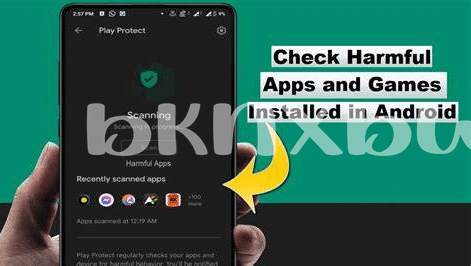
- Spotting Sneaky Behavior in Apps 🕵️♂️
- Unexpected Data Usage Spikes 📈
- Battery Drain: a Warning Signal 🔋
- Unwanted Pop-ups and Ad-noyances 🛑
- Performance Hiccups and Crashes 🐌
- Suspicious Permissions Requests 🚨
Table of Contents
ToggleSpotting Sneaky Behavior in Apps 🕵️♂️
Imagine finding an app that promises the stars ✨ but acts a bit like that mysterious stranger in the corner of the room. It’s a bit like a magic trick gone wrong – everything seems fine until it’s not. Your phone might start acting like it’s had a big night out, getting slow and groggy 🐌, or maybe it starts asking for access to things it really doesn’t need to know about, like your contacts or photos 🚨. And just when you think you understand what’s going on, your monthly data report comes in, and you’re left wondering if your phone’s been partying online without you knowing 📈. While you’re scratching your head, trying to figure it out, your app might be playing hide and seek with your device’s resources. So, it’s crucial to keep an eye out and not let those sneaky apps pull a fast one on you, lest you end up as a bagholder with an app that’s all smoke and no fire.
| Warning Sign | Meaning |
|---|---|
| Slow Device | Your phone starts slowing down out of the blue |
| Unusual Permissions | An app asks for access to unrelated features like contacts |
| Mystery Data Usage | Data usage spikes without clear reason |
Unexpected Data Usage Spikes 📈
Have you ever looked at your phone bill and thought, “Whoa, where did my data go?” You’re not alone; a lot of us have been there, scratching our heads as we see our phone data vanish like ice cream on a sunny day. Sometimes the reason behind this data disappearance is simpler than we think: an app we’ve downloaded might be a little greedier than we expected. These apps can munch through data like there’s no tomorrow, and it’s not always because they’re busy improving our experience.
So, how do we pin down the culprit? Imagine an app that’s like a silent magician, doing tricks in the background without you knowing. It could be a sign that something’s not quite right—like someone trying to cryptojacking your phone’s resources. Your mobile is working hard, without you using it, and that can mean you’re unknowingly hosting a party for some unwelcome guests. If you want to keep things in check, learn how to pin app on android, which can help keep those tricky apps in place and your data usage transparent. 🤔📱💡
Battery Drain: a Warning Signal 🔋
Ever noticed your phone acting like it’s run a marathon when all you did was check your email? It could be a tell-tale sign that something’s hogging your battery behind the scenes. 🕵️♂️🔋 Imagine your phone’s battery as a pie at a family dinner – apps usually nibble away at it gradually, but malware? It gobbles it up like it’s got the appetite of a whale. If your battery’s draining faster than your patience, it might be time to investigate what’s munching on your power.
Sometimes, an app can give your battery a tough workout, leaving you with a gadget that’s more paperweight than hi-tech wonder – especially if it’s busily cryptojacking in secret. You might think you’ve just got weak hands when it comes to battery conservation, but this is one case where you’ll want to hold on to every charge cycle. 🚨⚠️ These power-hungry pests could be a signal that you need to spring-clean those sneaky apps, starting with a good old DYOR on the usual suspects.
Unwanted Pop-ups and Ad-noyances 🛑
Imagine this scenario: you’re sifting through your phone, and suddenly, out of the blue, a whole bunch of ads flood your screen. It’s not just irritating—it’s a red flag that something’s not quite right. These annoying pop-ups can be a signal that an unwelcome guest is living in your device, taking a joyride at your expense. They pop up, uninvited, much like that one relative who always overstays their welcome. Now, think about those times when the ads seem to know a little too much about your interests, hinting that some hidden eyes may be lurking, picking up on your personal habits.
What’s even more pesky is when these ads disrupt something important you’re doing. Ever been knee-deep in a juicy article or caught up in the final levels of your favorite game, only to get bombarded by flashy distractions? Frustrating, right? Not to mention, it’s super sketchy when ads start recommending products or services that you’ve never even searched for—like they’ve got a knack for reading your mind or, more aptly, your private data. If this sounds familiar, you might want to start looking into ways to clean up your digital space. By the way, if you ever want to focus on one thing without distraction, recieve some peace of mind by learning how to pin an app on android. It’s a nifty trick to keep your workflow smooth and uninterrupted.
Performance Hiccups and Crashes 🐌
Imagine you’ve just downloaded a shiny new app on your Android phone. At first, everything seems fine, but soon your device starts to act like it’s had a big night out – slow, sluggish, and not ready for the day. 🐌 Just like a ‘bagholder’ clinging to their assets, you hold onto the hope that the app isn’t the cause of your phone’s sudden lethargy. And then, crash! It happens again and again, like a bad dream where you’re falling with no end in sight. 🛌 You start questioning the app’s purpose – was it really just for you to set a new high score, or is something else at play?
Suspicion grows and you can’t shake off the feeling that your digital companion might be up to no good. You notice your device’s performance glitches align with the app’s updates or when certain features are used, much like how ‘FUD’ can cause ripples in the calm waters of the market. You start to think, is it just a poorly built app, or could there be malware wriggling about behind the scenes? 🕵️♂️
These warning signs should not be ignored. They could be subtle indicators that your personal gadget has been compromised, revealing the need to dive deeper and maybe even consider hitting that ‘uninstall’ button. Here’s a quick peek at what to keep an eye on:
| Problem | What to Look For |
|---|---|
| App Crashes | App closes unexpectedly without error messages. |
| Sluggish Phone | Slow to respond, lags or freezes often. |
| High RAM Usage | Unexpectedly high memory usage with no significant operation. |
In these scenarios, your next moves are critical. Do your own research (DYOR), and if you find the app’s behaving more like vaporware without a strong foundation, don’t let your phone be the victim. It’s time to take action and get your device back to its old self – sleek, quick, and crash-free! Remember, just as with any investment, the health of your device requires vigilance, and acknowledging these red flags could save you from bigger troubles down the road.
Suspicious Permissions Requests 🚨
Imagine you’re downloading the newest game or social app that everyone’s been talking about. It’s all very exciting— especially if it promises to be the next big thing since Bitcoin Maximalists started chanting about mooning prices. But wait! Before you hit ‘accept’ on all those permission requests, it’s key to take a step back. Why does a simple puzzle game need to know your location or read your texts? It doesn’t add up, right? And if you’re not careful, you might end up a bagholder for some data-sapping malware.
Just like a Whale can make waves in the crypto market, an app with too many permissions can flip your phone’s world upside-down. If a flashlight app is asking to manage your calls—uh oh. That’s your cue to FOMO right out of there and uninstall it. After all, you don’t want to be rekt because an app seemed legit, but was actually setting you up for a rug pull on your privacy. So remember, be smart about what you give apps access to— it’s the digital equivalent of keeping your home locked, not just a silly chore to get through untill you can play.




